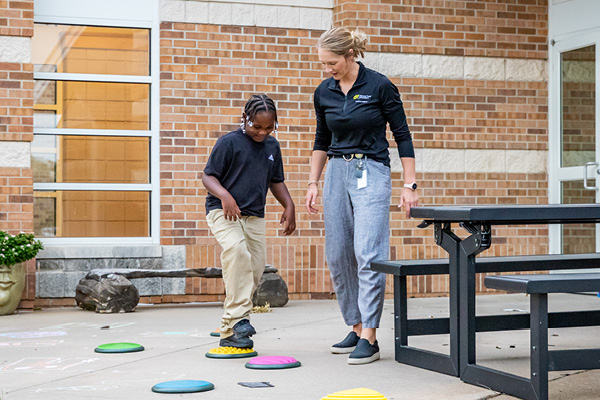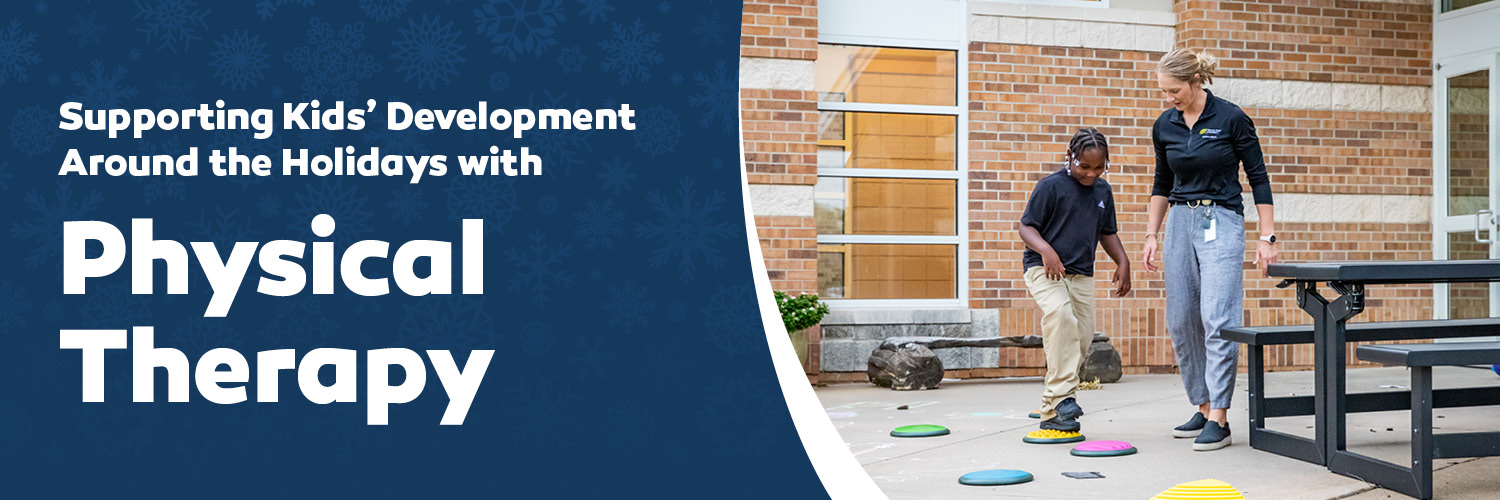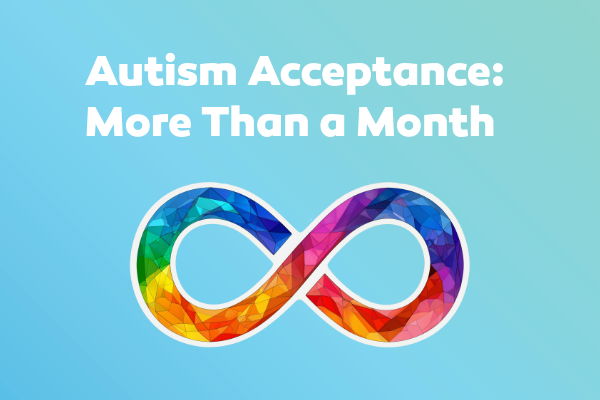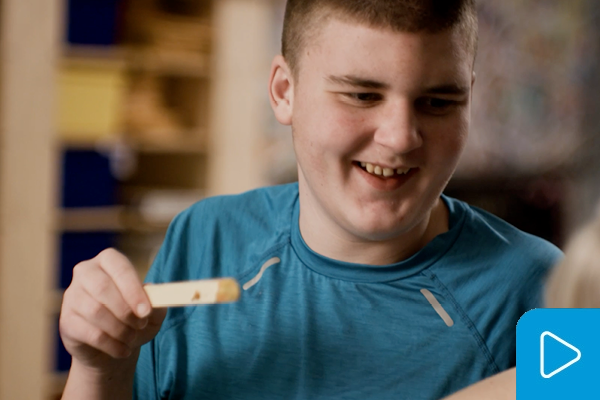4 MIN READ
Use Physical Therapy Techniques to Support Children’s Growth During Holiday Festivities

The holiday season can bring unique challenges for children with neurodevelopmental disorders and delays. Physical therapy and regular physical activity offer numerous benefits that can help children navigate these holidays with greater ease and comfort.
Physical activity can help children regulate their mood, reduce anxiety, and manage energy levels, making it easier for them to handle holiday excitement and transitions. Activities like gentle stretches or balance games can be integrated into family gatherings, allowing children to stay engaged without feeling overwhelmed.
Ryleigh Williams, a physical therapist at Wichita State University working with Heartspring says, “Not only does physical activity help children self-regulate, but it can also be a fun way to start new holiday traditions that involve the whole family!”
Many families run or walk 5Ks, play a pick-up game of football, go to a park, or play games outside if the weather cooperates during the holidays! Consider incorporating physical activity into your holiday plans so your child can work through any additional emotions they may be feeling this time of year and burn off the increase of sugar they might’ve eaten.
You can even engage the whole family with simple physical therapy games, like a Thanksgiving-themed obstacle course where they can "waddle" like a turkey or balance on "logs". Fun activities involving balance, coordination, or jumping can support children’s motor skills and make everyone feel involved in the holiday festivities.
Practicing everyday movements like setting the table and carrying groceries inside for the big meal can also benefit your child’s strength and motor skills. Not only do these activities support their physical development, but they can make children feel like a part of the holiday preparation if they’re too young to assist with the meal itself.
Overall, physical therapy and physical activity give children tools to enhance their resilience and participation in family traditions, allowing for a more comfortable holiday experience. Families can work with therapists to create home exercise plans or calming movement breaks that make the season inclusive and enjoyable for everyone.




